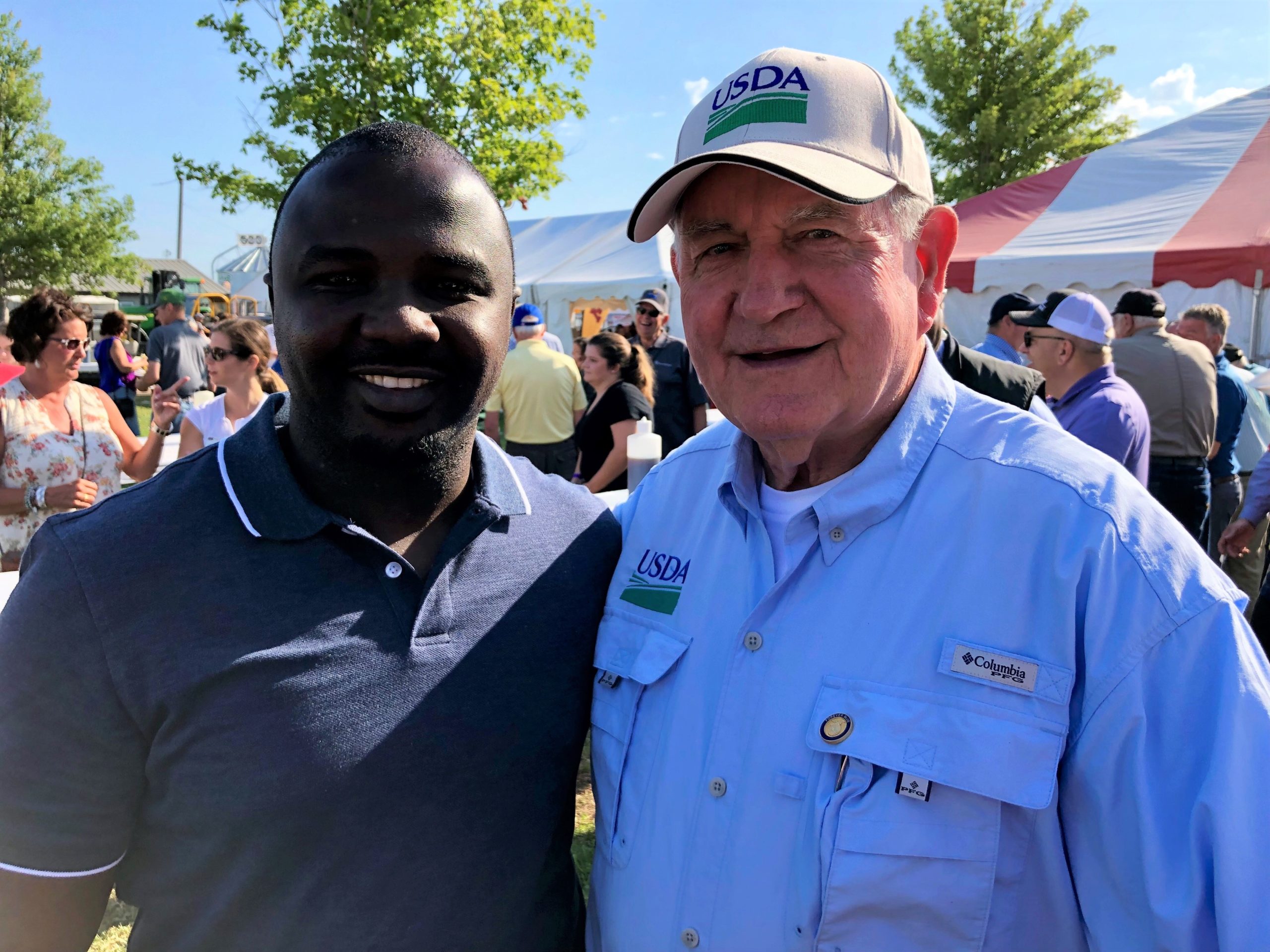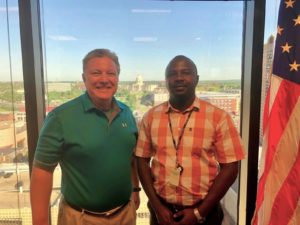Mandela Washington Fellows Visit Minnesota to Build Connections and Feed the World
By: Duane Voy, RMA Regional Office Director, St. Paul, Minnesota, and Laurent Shilingi, Assistant Lecturer and Junior Researcher, University of Dar es Salaam, Tanzania

The Mandela Washington Fellowship is the flagship program of the Young African Leaders Initiative (YALI), a program of the U.S. Department of State, and embodies our nation’s commitment to invest in the future of Africa. Through this initiative, young African leaders are gaining the skills and connections they need to accelerate their careers and contribute more robustly to strengthening democratic institutions, spurring economic growth, and enhancing peace and security in Africa.
Laurent Shilingi is one of 700 Fellows selected out of more than 38,000 African applicants to the Mandela Washington Fellowship to travel to the United States to focus on integrating agriculture, insurance, and micro-finance. Fortunately, this is an area in which USDA, and the Risk Management Agency (RMA) in particular, have considerable expertise. With the help of USDA’s Foreign Agriculture Service (FAS), Laurent was paired with RMA’s St. Paul Regional Office Director, Duane Voy, during his Fellowship.

Tanzania is endowed with more than 40 million hectares of agricultural land (one hectare is equivalent to 2.471 acres). Approximately 17.1 million hectares of Tanzania’s lands are currently under cultivation, and as a result, food production is falling far short of what’s possible.
Although Tanzania’s smallholder and emerging farmer community accounts for a majority of producers in the country, they lack access to modern technologies that could boost their productivity and help safeguard the country’s food security in the face of a growing population and an increasingly unpredictable climate. In addition, the escalating costs of identifying investment-ready farmers and the high-risk nature of Africa’s agricultural sector are key constraints for banks and loan providers who could provide agricultural financing. By leveraging his background in actuarial science, Laurent has been been working to design innovative crop insurance for smallholder and emerging farmers.
Laurent’s Fellowship provided him a unique opportunity to visit organic farmers in Iowa and learn about crop insurance and FSA loan programs, methods to protect program integrity, and Geographic Information System mapping projects. He also observed American agriculture technology firsthand at Farmfest where he had the pleasure of meeting Secretary Perdue, who participated in a U.S. House Agriculture Committee Listening Session on the Farm Economy. The University of Minnesota and the Federal Reserve Bank of Minneapolis also hosted the Fellows teaching them about youth and community programs and the role of the Federal Reserve in the U.S. to keep inflation low and stable and maximize employment.
When not working, Laurent and two other Fellows traveled with RMA Director Voy to Duluth. They were surprised to learn that Lake Superior alone contains 10 percent of the world’s fresh water and that more ships pass through the Port of Duluth every year than through the Panama Canal. They were also impressed with the Port of St Paul’s barge traffic, which ships grain to the Gulf of Mexico.
As Laurent wraps up his Fellowship in St. Paul, he has already begun planning the next steps of his project, identifying key stakeholders, sources of data, how to enhance current micro-crop insurance, as well as methods to expand agricultural loans and investments, and the types of outreach and education necessary to move the project forward. There are still challenges to overcome, but with the support of major stakeholders and government officials, a successful pilot program is planned within the next 2-3 years.
Originally posted to the U.S. Department of Agriculture blog.
Learn more about the Professional Development Experience (PDE) component of the Fellowship.
The Mandela Washington Fellowship is a program of the U.S. Department of State with funding provided by the U.S. Government and administered by IREX. The views expressed in this piece are those of the authors and do not necessarily represent the views of the U.S. Government.
Next Story
Nozipho Dlali
2018 Fellowship Alumna, South Africa